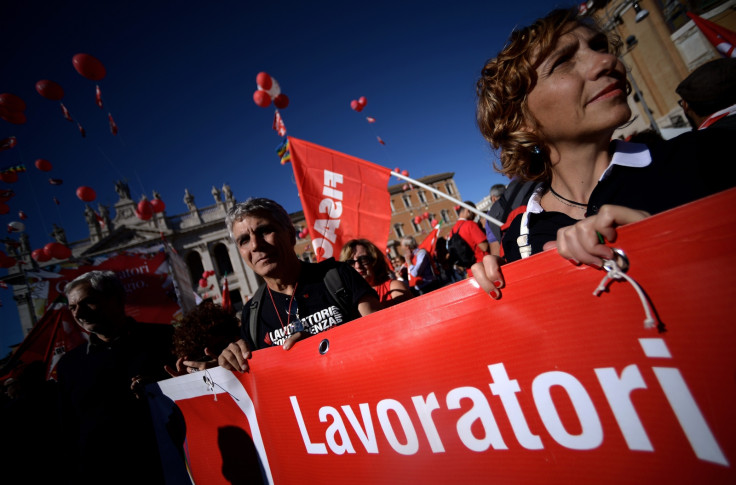Italy: Government and Unions Clash as Steel Workers are Wounded in Rome Protest Against ThyssenKrupp

Clashes outside the German embassy in Rome where steel workers were protesting against ThyssenKrupp's decision to fire 537 workers at the Acciai Speciali Terni (AST) plant in central Italy have left three demonstrators wounded, according to local reports.
The workers claimed that club-wielding police charged them as they gathered in Rome to rally against the controversial decision of the multinational steel group. "Police hit us violently on the head," they said.
Maurizio Landini, head of the metalworkers' Fiom union, said: "As soon as we started our march, we were charged without provocation. I too received blows from police. Some of us ended up in the hospital. It's not ending here."
Roman police denied that any baton charge took place, calling the measure a "containment action" after protesters tried to force the police line to break so they could get into Termini train station to occupy it.
Earlier in October 2014, ThyssenKrupp confirmed that its new industrial plans for the AST plant in Terni, Umbria region, included cost cuts of €100m (£80m) and staff reduction of 550 workers.
Italian unions and the coalition government headed by Prime Minister Matteo Renzi are at a standoff after the latter supported plans to loosen labour protection and make it easier for companies to fire workers in an attempt to tackle the country's longstanding unemployment rate. Youth unemployment in the country topped 44.2% and Italy came close to its third recession in six years in September 2014.
On Saturday, tens of thousands of people marched in one of the largest gatherings in years organised by the red flag-bearing CGIL, Italy's largest union. Members of the government also attended the protest, creating tension with the official line of the party. They are divided over Article 18, the principle that protects unfairly dismissed workers and which is at the core of the labour market reform. Renzi proposed that workers ought to earn job protection and benefits over a period of time.
"If Renzi and his government have their antennas up, as they usually do, they will receive a very strong signal today which is that the majority of the people who work and who want to work in this country do not agree with their politics," Landini told Reuters.
Renzi's proposal, which aims at giving businesses more flexibility and was backed by European economic experts and lawmakers, is directed at fixing the generational divide between young workers - who find it hard to have their employment rights guaranteed - and older employees.
But radical left-wingers and the unions say the proposals undermine workers' rights without solving root causes for Italy's economic weakness. The country's economic prospect has shrunk to 9% since the start of the financial crisis in 2007.
© Copyright IBTimes 2025. All rights reserved.






















